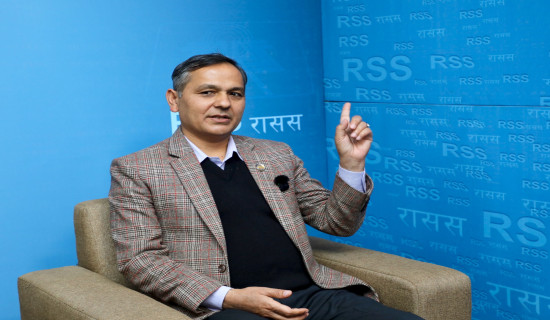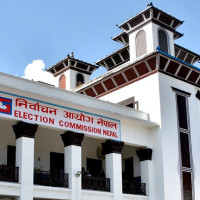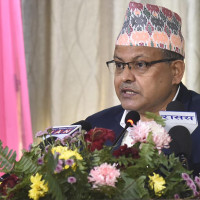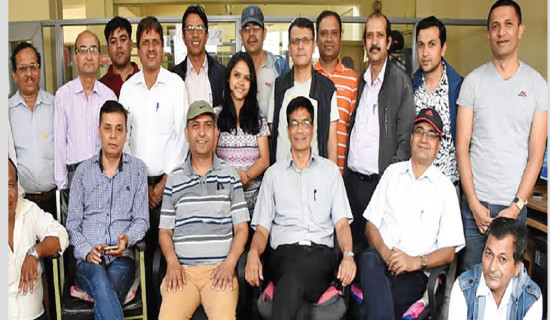- Monday, 23 February 2026
Vulnerable group to get COVID booster dose
Kathmandu, Feb. 28: Vaccines against COVID-19 have significantly helped in mitigating the threat of the coronavirus since their rollout began in January 2021 in Nepal. According to health experts, immunity after vaccination against COVID-19 decreases over time. So, it is essential to strengthen our immunity with a booster dose.
“After the number of vaccinated people increased across the nation, severe complications, hospitalisations and deaths due to COVID-19 decreased significantly. So, one must be updated with the COVID-19 vaccination,” said Dr. Khem Bahadur Karki, a public health expert.
The government has started to provide booster dose against COVID-19 to certain priority groups after the COVAX facility, delivered 1.5 million doses of the Pfizer-BioNTech’s bivalent vaccine.
Various studies have showed that COVID-19 vaccine booster doses are safe and continue protection after receiving initial vaccination series and reduce the risk for serious COVID-19 related complications, hospitalizations and deaths.
According to the latest data of the Ministry of Health and Population (MoHP), of the total population, 79.5 per cent are vaccinated against COVID-19 with first dose and 76.6 per cent with full dose. A total of 7,972,791 people have been vaccinated with additional doses of the vaccine so far.
Who will get the booster?
According to Dr. Abhiyan Gauatm, chief at th Child Health and Immunisation Section, Family Welfare Division under the Department of Health Services, the most vulnerable group of people including all above 55 years of age will be administered Pfizer BioNTech’s bivalent COVID-19 vaccine.
As per the MoHP, health workers, pregnant women and people above 12 years of age having compromised immunity and suffering from chronic diseases are also on the priority list to be administered the booster jab in the first phase.
One who has completed a primary COVID-19 vaccination series in the previous three months and who were left to receive the booster shots previously or who had received the booster shot six months ago, will receive the vaccine as second booster shot, said Dr. Gautam. In the first phase, prioritised people meeting the above criteria will receive the bivalent jab, he added.
What is booster vaccine like?
The vaccine advisory committee of Nepal has given emergency use authorization only to Pfizer-BioNTech’s bivalent vaccine for a booster dose.
The vaccine is called bivalent COVID-19 vaccine as it contains two components including the original virus strain and Omicron BA.4 and BA.5 sub-variants.
According to the U.S. Food and Drug Administrations (FDA), the bivalent COVID-19 vaccines include a component of the original virus strain to provide broad protection against COVID-19 and a component of the Omicron variant to provide better protection against COVID-19 caused by the Omicron variant.
The bivalent COVID-19 vaccine may also be referred to as “updated” COVID-19 vaccine booster dose, as per the US (FDA).
Where to get the booster?
“We have already supplied Pfizer vaccine doses to all the seven provinces,” said Dr. Surendra Chaurasia, chief of the Logistic Management Section at the Family Welfare Division under the Department of Health Services (DoHS).
The province will distribute the vaccine doses to the local levels and will administer the booster shot from the health institutions, said Dr. Chaurasia. Earlier, all the seven province health directorates had demanded the required vaccine doses with the DoHS.
The vaccine is being administered from hospitals of the Nepal Army, the Armed Police Force, Sukraraj Tropical and Infectious Disease Hospital, Tribhuvan University Teaching Hospital, Bir Hospital and Civil Hospital among other health institutions in Kathmandu.
According to the MoHP, 12,020 deaths have been attributed to COVID-19 in the country. As per its latest update, 1,153,376 people have tested positive for the pandemic since the start nearly three years ago.
As per the latest update of the MoHP, there are currently eight active infected people across the country, and all of them are in home isolation. Nepal has not recorded any COVID-19 cases for many days in the last few months, although three new cases were detected on Monday.



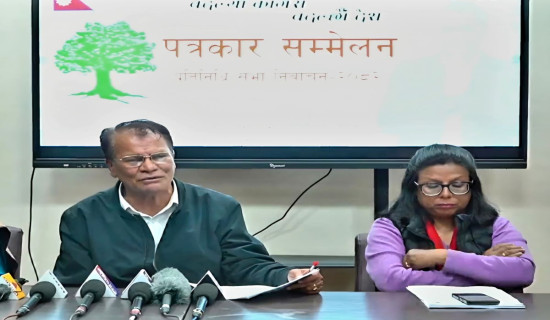
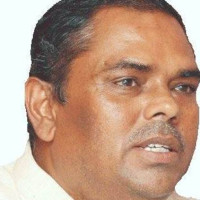
-square-thumb.jpg)
